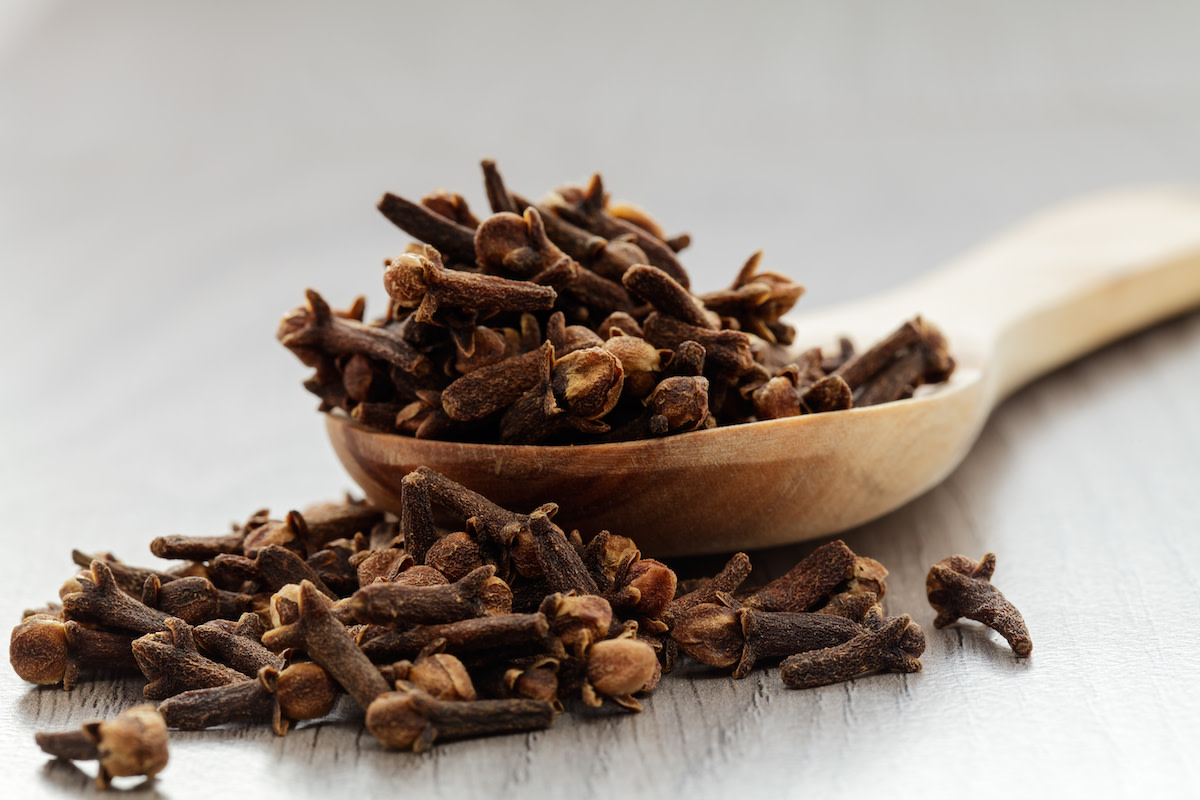What Are Cloves? Culinary Uses of Cloves
Written by MasterClass
Last updated: Aug 5, 2021 • 3 min read
One of the oldest and most storied spices in existence, cloves—or Eugenia Caryophyllata in Latin—have a rich culinary and medicinal history dating back thousands of years. Today, cloves are best known for their powerful aroma that can add intense warmth to any dish they are added to.
What Are Cloves?
Derived from the flower buds of Syzygium aromaticum, an evergreen tree in the myrtle plant family, cloves are a powerfully aromatic spice that resemble a tiny tack. Named after the French word “clou,” meaning “nail,” cloves are a popular spice around the world and are used in a wide range of international cuisines.
Learn From the Best
Where Do Cloves Come From?
First originating in the Maluku Islands of Indonesia, this aromatic spice is still a prominent product of Indonesia. Today, cloves are also harvested in Madagascar, Sri Lanka, India, Tanzania, Zanzibar, and other hot, tropical areas. The clove tree grows best in highly humid environments with an average temperature of 70 to 85 degrees fahrenheit, making tropical environments the perfect fit for this plant.
A Brief History of Cloves
In Ancient China, this aromatic spice was used not only in cooking, perfumery, and medicine, but also as an oral antiseptic for anyone meeting with the emperor in order to guarantee their breath was as fresh as possible.
As word of this potent spice spread around the world, it became the focus of trade wars between European empires who hoped to control the market of this popular herb. The Dutch even took the extreme step of burning down every clove tree that didn’t grow in the Dutch-controlled spice islands in order to guarantee they had a monopoly on this mighty ingredient.
What Do Cloves Taste Like?
This intensely aromatic spice has a subtly sweet flavor that lends plenty of warmth to any dish. Pairing well with other rich, slightly sweet spices like cinnamon, nutmeg, and allspice, cloves also have a slight note of bitterness and astringency that counterbalances the sweetness. Given their notably strong taste and aroma, cloves are used sparingly in most dishes.
What’s the Difference Between Whole vs. Ground Cloves?
Although cloves are available in both whole and ground form, culinarily cloves are preferred whole, as the whole bud contains far more flavor and aroma prior to being ground. Though, whole cloves can be replaced with ground cloves: as a rule of thumb, use ¾ teaspoon of ground cloves per 1 teaspoon of whole cloves called for in the recipe.
Whole cloves also have a longer shelf life than ground clove powder, and will stay fresh for up to a year when stored in a cool, dry place in an airtight container.
What Are the Culinary Uses for Cloves?
Cloves are commonly used in spice blends for meat rubs and marinades, including the popular blends Chinese five-spice powder and garam masala. They're one of many spices used to make Vietnamese pho, and they stud whole-baked hams and pots of German braised red cabbage.
One of the most common uses of this aromatic spice is flavoring hot drinks, like mulled wine, Masala chai tea, and hot apple cider. Another is flavoring sweet dishes like stewed apples and pears, pumpkin pie, and gingerbread. Cloves are also a main ingredient in Worcestershire sauce, and are commonly used to add sweetness and spice to other sauces, jams, and pickling mixtures. Whole cloves are typically removed from beverages, sauces, and other recipes before serving.
What Can You Substitute for Cloves in Cooking?
Potential substitutes for cloves include:
- Allspice
- Nutmeg
- Cinnamon
What Are the Health Benefits of Cloves?
Cloves have been used in natural medicinal practices, like Ayurvedic medicine and Chinese medicine, for thousands of years. With antibacterial and antimicrobial properties, cloves can help improve digestion and reduce inflammation. Cloves also contain beneficial vitamins and minerals, including Vitamin C, Vitamin K, manganese, and fiber.
8 Recipe Ideas Featuring Cloves
- Pumpkin Pie - A classic fall pie recipe made with ground pumpkin, condensed milk, eggs, ground cloves, nutmeg, and cinnamon.
- Chai Tea - Steep black tea in hot water with crushed cloves, sugar, and cinnamon sticks.
- Honey Baked Ham with Cloves - A traditional Easter recipe brushed with a glaze of honey, mustard, sugar, and cloves.
- Mulled Red Wine - Dry red wine simmered with whole cloves, cinnamon sticks, star anise, sugar, and orange slices.
- Cookies with Clove Sugar - Simple butter cookies dusted in a mixture of powdered sugar and ground cloves.
- Spice-Roasted Squash - Roasted cubed winter squash coated in olive oil, ground cloves, cinnamon, black pepper, and salt.
- Apple Butter - Stewed apples combined in a food processor with sugar, ground cinnamon, and ground cloves.
- Arroz con Leche - A Dominican spiced rice pudding made with long-grain rice, evaporated milk, butter, whole cloves, cinnamon sticks, and raisins.
